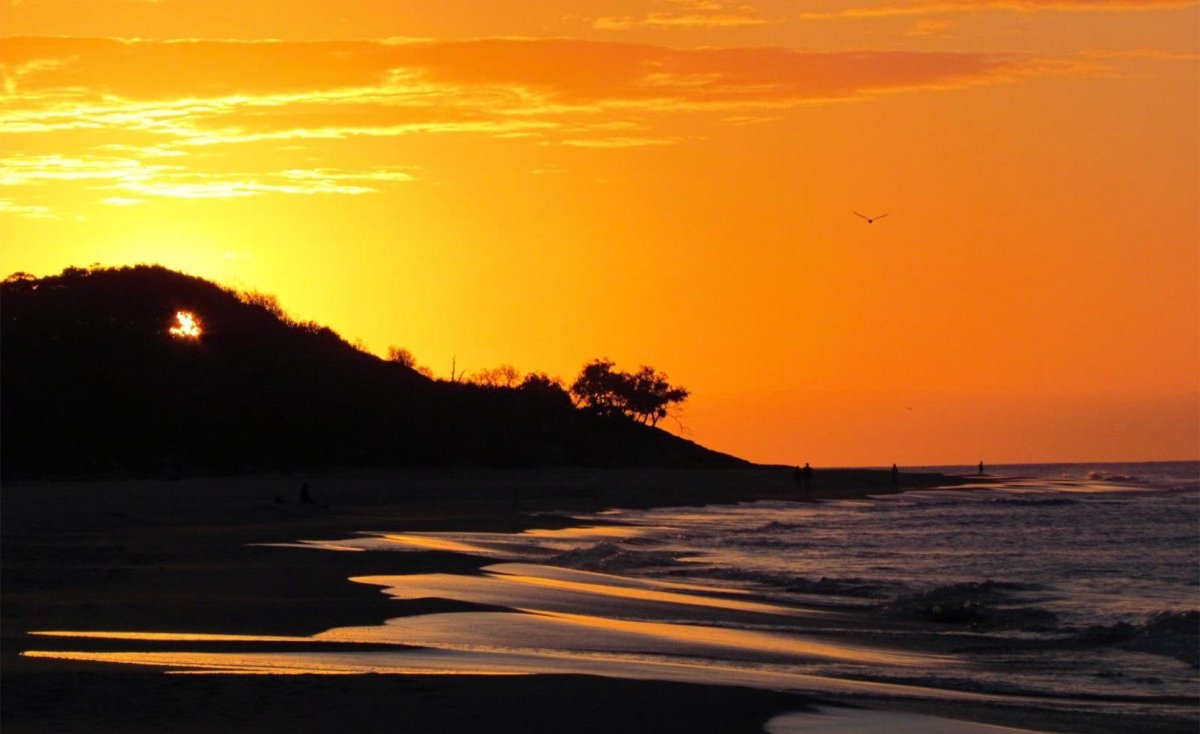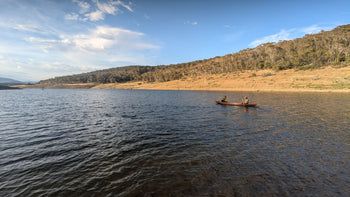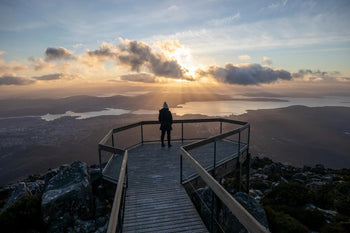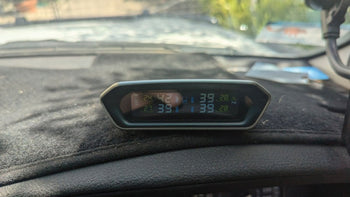

Welcome to the second state/territory in our free and budget camping spots series — this time we’re covering sunny Queensland. But the offerings and variety are huge, so we’re bringing Queensland to you in three parts.
Dairy prices? Up. Meat and seafood prices? Up. Fruit and vegetable prices? Up. Bread prices? Up. Electricity prices? Up. Rents? Up. Mortgage interest rates? Up. Insurance premium and financial services fees? Fuel? Up. (And down).
With more people struggling to afford their outdoor recreation lifestyles thanks to the cost-of-living crisis, the thought of paying for an expensive holiday is not a pleasant one.
If you’re currently planning your next road trip camping adventure but are quickly discovering a lot of places have hiked up their prices, you’re not alone.
Fortunately, there are many camping-style destinations in Australia which offer fairly priced, low cost or even free camping grounds. Not sure which ones are free (or close to it)? Not to worry, we’re here to help. With our series (by state) on free and budget campsites, we’ll strive to uncover all the best — and cheapest — camping spots. So, let’s take a look at what Queensland has to offer. And if you missed our coverage of the Northern Territory’s best free and budget campsites, just hit this link to catch up.
The Sunshine State offers a warm climate, dramatic coastlines, white sandy beaches, waterfalls and waterholes, dense rainforests (including the world's oldest tropical rainforest, the Daintree), tropical islands, outback events, ancient gorges and an abundance of outdoor activities. Queensland is home to five UNESCO World Heritage sites, around 35% of Australia’s national parks and many of Australia’s quintessential touring routes, including Matilda Way, Adventure Way, Capricorn Way, Pacific Coast Way, Overlanders Way (shared with NT), Outback Way and Savannah Way (both shared with NT and WA).

Queensland regions
Queensland covers vast landscapes and terrains, and you can experience different climates and environments in different areas of the state. It’s quite incredible how varied the state is, from the tropical environment in Far North Queensland to the sand islands of K’gari (Fraser Island) and the arid outback.
The state comprises 13 official tourism regions — Brisbane, Bundaberg, Capricorn, Fraser Coast, Gladstone, Gold Coast, Mackay, Outback Queensland, Queensland Country, Sunshine Coast, Townsville, Tropical North Queensland and Whitsundays — and while we won’t be able to cover them all in this article, we’ll endeavour to cover as many as we can … though not the Gold Coast or Sunshine Coast, neither of which are well known for their (minimal) free camping options.
Camping grounds
Ben-Ewa Camping Area, Moreton Island (Mulgumpin), Brisbane region

The Ben-Ewa campground is located on the more sheltered side of Moreton Island (Mulgumpin), in Gheebulum Kunungai (Moreton Island) National Park — only a hop, skip and a jump from the barge landing point. It should scarcely be surprising that the third-largest sand island in the world, after K’gari (Fraser Island) and North Stradbroke Island (Minjerribah), has some of the most beautiful beaches to be found. Whilst Tangalooma Beach doesn’t seem to make it onto too many ‘best beaches in the world’ lists, once you’ve set up camp at Ben-Ewa campground and are sitting on the beach enjoying sundowners, you’ll be wondering why it hasn’t.
The entirety of Moreton Island (Mulgumpin) can only be driven in a four-wheel drive vehicle, and the Ben-Ewa campground is no exception. That said, if you intend to head to the island in your boat, this campground has excellent boat access since it is just behind the beach. Its proximity to the barge landing area also makes it an excellent option for walk-in camping.
If you want a campfire though, you’ll be wanting to car camp rather than walk in since the collection of firewood (and even twigs for kindling) on the island is prohibited due to its national park status, and you’ll need to bring in all of your firewood requirements including an axe because chainsaws are prohibited. Firewood can be purchased from Castaways Café and Licensed Store in Bulwer, a little under 10km north of Ben-Ewa.
Ben-Ewa is one of only three designated campsites and the five camping zones at which campfires are permitted; fires are not permitted everywhere else in the Gheebulum Kunungai (Moreton Island) National Park and Recreation Area, including on all beaches. Be sure to have at least 10 litres of water within relatively close proximity to your campfire and extinguish it completely with this water, not sand (ashes can reignite days later, even if covered with sand as it can retain heat for a long time), before leaving the campsite or going to sleep.
Water is available at Ben-Ewa however it must be treated with water purification tablets before drinking or using it for cooking. There are composting toilets and cold showers. Generators, pets and motorbikes are not permitted. You will need to bring rubbish bags (rubbish is not collected from campsites) and sand pegs for your guy ropes, and a back-up supply of potable water is recommended.
In (or on) your 4WD vehicle you should have a vehicle recovery kit, recovery/traction boards, first aid kit and fire extinguisher, air compressor (you’ll want to deflate your tyre pressure to below 20 psi), Emergency Position-Indicating Radio Beacon (EPIRB), personal locator beacon (PLB) or GPS messenger device such as the Garmin inReach Mini 2 or ZOLEO Satellite Communicator, strong rubbish bags, fly net, sunscreen, insect repellent (mosquitoes and sandflies can be plentiful!), toolkit and shovel. Not to mention sufficient fuel, keeping in mind that your 4WD will likely consume up to 30 per cent more fuel driving in soft sand, even if you aren’t towing a camper trailer. Whilst there is commercially available fuel at Castaways Café and Licensed Store, it may not always be available in the quantities you need, so it’s a good idea to bring extra.
There are only 12 sites at Ben-Ewa, so we recommend booking several months in advance if practicable. Whilst the campground is maintained by Queensland Parks and Wildlife Service, Ben-Ewa campground must be booked via the Quandamooka Yoolooburrabee Aboriginal Corporation (QYAC) website rather than via the Queensland National Parks Booking Service.
The fee is $7.25 per person per night. You will also need a Vehicle Access Permit, for which the fee is $57.80 per vehicle (for up to one month) or $291 per vehicle (for up to 12 months). Only one vehicle per campsite is permitted and the maximum stay is 30 days.
North Stradbroke Island (Minjerribah), Brisbane region

While we’re talking about budget camping on sand islands, let’s take a look at the world’s second-largest sand island, North Stradbroke Island (Minjerribah). If the flora, fauna, recreational opportunities and learning about the cultural heritage of the Traditional Owners, the Quandamooka people, aren’t enough to entice you to take a camping holiday on North Stradbroke Island (Minjerribah) — and they should be! — then the locations and affordable fees for camping here will be!
There are several camping areas from which to choose, depending on whether you have a 4WD, AWD or 2WD vehicle.
Cylinder Beach Camping Ground, Amity Point Camping Ground, Adder Rock Camping Ground, Home Beach Camping Ground and Bradburys Beach Camping Ground are all accessible by 2WD or AWD vehicles, whilst Main Beach and Flinders Beach all require a high clearance 4WD. Please note that quad bikes, motorcycles and AWD vehicles are prohibited on the beaches or in the Recreation Area.
The beach driving speed limits vary between Main Beach and Flinders Beach, with a maximum of 60km/h on the former and 40km/h on the latter. Oh, and before you go thinking that the Queensland Police Service (QPS) won’t catch and penalise any drivers exceeding these limits on the beach, think again. Be sure not to drive on either Flinders Beach or Main Beach either side of high tide; if you do, it’s quite possible that a speeding ticket will be the very least of your worries.
Take your (double-bagged) rubbish out with you, inside your vehicle or in your Bushranger Wheelie Bin (not hanging off your bull bar), since the good ol’ days of rubbish bins at campgrounds are behind us (and a good thing too). If you’re camping along Flinders Beach, drop off your refuse at a rubbish dump point before you leave the island (Amity Point Access and Flinders Beach Access).
If your travel plans include beach driving, you will need a Vehicle Access Permit (one month from $57.80 or yearly from $173.30). Beware of washouts, drop offs and nesting turtles (especially nesting turtles!).
At Amity Point Camping Ground, you’ll likely see great sunsets, koalas, pelicans and maybe even dolphins offshore. You won’t see any dogs or hear any generators though, because these are prohibited not only at this camping ground but also at Adder Point, Cylinder Beach, Home Beach and Bradburys Beach Camping Ground. Open fires are also not permitted at any of these camping grounds.
Powered sites at Amity Point Camping Ground can be booked from $69 per night (two persons twin share) permitting tents, camper trailers, campervans and caravans. There are sheltered barbecue areas, but open fires are not permitted. Upgrade to a waterfront powered site from an extra $10 per site per night (midweek, low season). Waterfront unpowered tent-only sites start from $59 per night; your car will need to sleep in the car park. Waterfront unpowered van sites are similarly priced. Non-waterfront powered tent or caravan sites can be booked from $49 per night; again, you’ll need to walk a little bit to/from your car.
All 2WD-accessible camping grounds have toilet facilities, hot showers (timed), barbecue areas (excepting Cylinder Beach Camping Ground, adjacent to which is a park that has electric barbecues) and coin-operated laundry facilities. Note that not all sites support car camping. Further, some sites in these camping grounds only permit tents, or only permit vans. And so on.
Sites at Home Beach Camping Ground start from $49 per night twin share (unpowered) and $69 per night twin share (powered).
At Cylinder Beach Camping Ground sites start from $59 per night twin share (unpowered) and $79 per night twin share (powered).
At Bradburys Beach Camping Ground there are powered sites only, starting from $69 per night twin share, bookable for caravans or campervans only.
Main Beach and Flinders Beach Camping Areas are suitable for 4WD vehicles, tent camping, offroad caravans and offroad camper trailers only. Maximum one vehicle per campsite. Buy a shower pass so that you can use the toilet and shower facilities at Adder Rock Campground. Cooking fires are permitted however you must bring your own firewood. Got a generator? You can arc it up from 7am to 9pm. Got a dog or two? You may bring up to two dogs per campsite and they must always be leashed.
Flinders Beach has composting toilets in three areas but not all. For self-contained campers there is a dump point at Area H (Track 5) on Flinders Beach and also at Adder Rock Camping Ground. You can buy a shower/toilet facilities access card at Adder Rock Camping Ground (between 8am and 4pm).
All sites in the Flinders Beach Camping Area are priced per night from $21.80 (two adults, twin share), $30.05 for three adults, $38.30 for four adults or $34.10 for two adults and two children. The per night corresponding fees for sites in the Main Beach Camping Area are $19.05, $25.90, $32.75 or $29.85, respectively.
At time of writing the camping fees listed are the correct midweek rates for two adults; all fees increase for stays including a Friday and/or a Saturday night and additional per person fees apply.
For detailed information about camping fees, vehicle access permits, beach access, beach-driving conditions and regulations, visit minjerribahcamping.com.au, email info@minjerribahcamping.net.au or phone 07 3059 4042.

Benarkin State Forest, Queensland Country region
You’ll be wanting to bring your mountain bike, gravel bike and/or hiking boots with you for this one.
Benarkin State Forest — approximately 150km from Brisbane, a smidge over 100km from Toowoomba and a touch below 150km from the Sunshine Coast by car — is located at the intersection of the Brisbane Valley Rail Trail and the Bicentennial National Trail, so you’ll be sure to want to stretch those legs while you take in the magnificent rainforest and eucalypt forest scenery of the Blackbutt Range.
There are two camping areas in Benarkin State Forest, being Clancys camping area and Emu Creek camping area (co-located with Emu Creek day use area). Both are open, grassed camping areas abutting Emu Creek, which has some great spots to take a refreshing swim in one of the small swimming holes, or to wet a line angling for golden perch (yellowbelly). Each area has sites for car camping, camper trailers, caravans and motorhomes, flushing toilets, open fireplaces and woodfired barbecues. As for your furry friend/s, your (leashed and under control) dog is permitted at Clancys camping area but not at Emu Creek camping area. Cats are prohibited at both, as are generators.
You can grab a cold shower at the Emu Creek area but there are no shower facilities at Clancys. There is water at both sites however this must be treated before drinking, therefore if you don’t have water purification tablets be sure to bring an ample supply of potable water for the duration of your stay. Enjoy eating your camping meals at a picnic table at Emu Creek, however if you want a table at Clancys you’ll need to bring your own.
You must bring your own firewood if you intend to use the fireplaces or woodfired barbecue.
Camping permits (mandatory) must be booked and paid for online before setting up your camp. Camping fees apply ($7.25 per person per night or $29 per family per night, with a family comprising one or two adults with a total of eight people including children). Maximum stay is 14 nights.
Return for part two
We’re not finished with Queensland’s best free and budget camping spots yet! Come back next week for part two.



